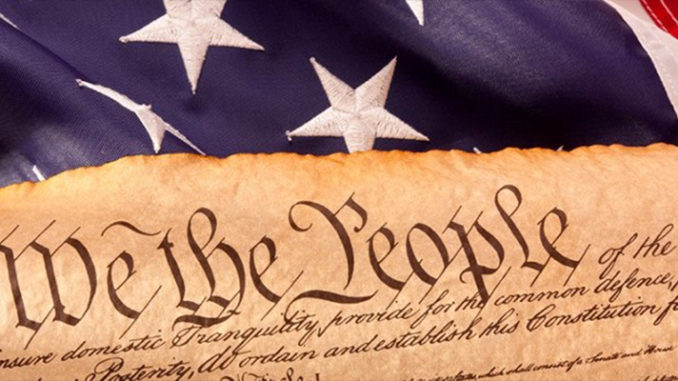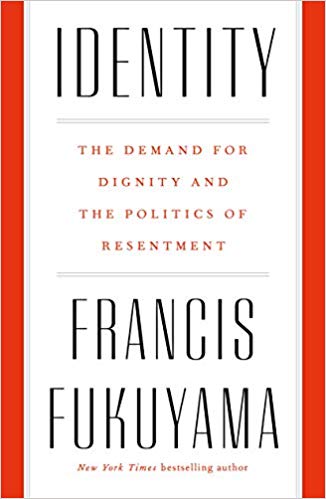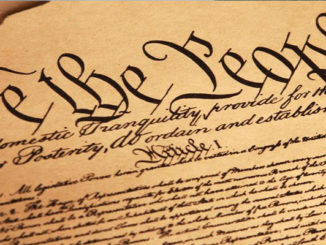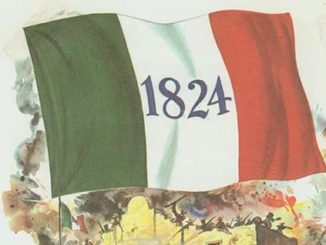
by Francis Fukuyama
National identity has been pivotal to the fortunes of modern states. When channeled in the form of an exclusive and intolerant ethnonationalism, it can drive acts of persecution and aggression. Yet national identities can also be built around liberal and democratic political values, and around the shared experiences of diverse communities. Contrary to arguments that the concepts of national identity and state sovereignty have become outmoded, such an inclusive sense of national identity remains critical to maintaining a successful modern political order. National identity not only enhances physical security, but also inspires good governance; facilitates economic development; fosters trust among citizens; engenders support for strong social safety nets; and ultimately makes possible liberal democracy itself.
 Twentieth-century politics was organized along a left-right spectrum defined by economic issues, the left wanting more equality and the right demanding greater freedom. Progressive politics centered around workers, their trade unions, and social-democratic parties that sought better social protections and economic redistribution. The right, by contrast, was primarily interested in reducing the size of government and promoting the private sector. In the second decade of the twenty-first century, that spectrum appears to be giving way in many regions to one defined by identity. The left has focused less on broad economic equality and more on promoting the interests of a wide variety of groups perceived as being marginalized—blacks, immigrants, women, Hispanics, the LGBT community, refugees, and the like. The right, meanwhile, is redefining itself as a collection of patriots who seek to protect traditional national identity, an identity that is often explicitly connected to race, ethnicity, or religion.
Twentieth-century politics was organized along a left-right spectrum defined by economic issues, the left wanting more equality and the right demanding greater freedom. Progressive politics centered around workers, their trade unions, and social-democratic parties that sought better social protections and economic redistribution. The right, by contrast, was primarily interested in reducing the size of government and promoting the private sector. In the second decade of the twenty-first century, that spectrum appears to be giving way in many regions to one defined by identity. The left has focused less on broad economic equality and more on promoting the interests of a wide variety of groups perceived as being marginalized—blacks, immigrants, women, Hispanics, the LGBT community, refugees, and the like. The right, meanwhile, is redefining itself as a collection of patriots who seek to protect traditional national identity, an identity that is often explicitly connected to race, ethnicity, or religion.
A long tradition dating back at least as far as Karl Marx sees political struggles as a reflection of economic conflicts, essentially as fights over shares of the pie. Indeed, this is part of the story of the 2010s, with globalization producing significant numbers of people left behind by the overall growth that occurred around the world. But despite the importance of material self-interest, human beings are motivated by other things as well, motives that better explain the disparate events of the present. These motives give rise to what might be called the politics of resentment. In a wide variety of cases, a political leader has mobilized followers around the perception that a group’s dignity has been affronted, disparaged, or otherwise disregarded. This resentment engenders demands [End Page 5] for public recognition of the dignity of the group in question. A humiliated group seeking restitution of its dignity carries far more emotional weight than people simply pursuing their economic advantage.
Thus, Russian president Vladimir Putin has talked about the tragedy of the collapse of the former Soviet Union, and how Europe and the United States took advantage of Russia’s weakness during the 1990s to drive NATO up to its borders. He despises the attitude of moral superiority shown by Western politicians and wants to see Russia treated not, as former U.S. president Barack Obama once said, as a weak regional player, but as a great power. The Chinese government of Xi Jinping has talked at length about China’s “one-hundred years of humiliation,” and how the United States, Japan, and other countries were trying to prevent its return to the great-power status it had enjoyed over millennia of history. Resentment at indignities is a powerful force in democratic countries as well. In the United States, it has animated developments as varied as the Black Lives Matter movement against police brutality, the #MeToo campaign against sexual harassment and assault, and the strong support of rural voters for the presidential candidacy of Donald Trump.
These are all cases in which a group, whether a great power such as Russia or China or an assemblage of citizens in a democracy, believes that it has an identity that is not being given adequate recognition—either by the outside world, in the case of a nation, or by other members of the same society. Those identities can be and are incredibly varied, based on nation, religion, ethnicity, sexual orientation, or gender. They are all manifestations of a common phenomenon, that of identity politics.
The terms identity and identity politics are of fairly recent provenance, the former having been popularized by the psychologist Erik Erikson during the 1950s, and the latter coming into view only in the cultural politics of the 1980s and 1990s. Identity has a wide number of meanings today, in some cases referring simply to social categories or roles, in others to basic information about oneself (as in “my identity was stolen”). Used in this fashion, identities have always existed.
Here, however, I am using the term identity in a specific sense that helps us understand why it is so important to contemporary politics. In the first place, identity so understood grows out of a distinction between one’s true inner self and an outer world of social rules and norms that does not adequately recognize that inner self’s worth or dignity. Individuals throughout human history have found themselves at odds with their societies. But only in modern times has the view taken hold that the authentic inner self is intrinsically valuable, and the outer society systematically wrong and unfair in its valuation of the former. It is not the inner self that has to be made to conform to society’s rules, but society itself that needs to change.
The inner self is the basis of human dignity, but the nature of that dignity is variable and has changed over time. In many early cultures, [End Page 6] dignity was ascribed only to a few people, often warriors willing to risk their lives in battle. In other societies, dignity is viewed as an attribute of all human beings, based on their intrinsic worth as people with agency. And in other cases, dignity is accorded on the grounds of one’s membership in a larger group of shared memory and experience.
Finally, the inner sense of dignity seeks recognition. It is not enough that I have a sense of my own worth if other people do not publicly acknowledge it or, worse yet, if they denigrate me or fail to acknowledge my existence. Self-esteem arises out of the esteem shown by others. Because human beings naturally crave recognition, the modern sense of identity evolves quickly into identity politics, in which individuals demand public recognition of their worth. Identity politics thus encompasses a large part of the political struggles of the contemporary world, from democratic revolutions to new social movements, from nationalism and Islamism to the politics on contemporary American university campuses. Indeed, Hegel argued that the struggle for recognition was the ultimate driver of human history, a force that was key to understanding the emergence of the modern world.
National Identity and National Flourishing
In this essay I want to focus upon a specific aspect of identity that has reemerged with particular vigor as a political force in recent years. This consists of questions about national identity: how it is constituted, whom it includes, and what place it ought to occupy in contemporary life.
National identity has been pivotal to the fortunes of modern states. Weak national identity has been a major problem in the greater Middle East, where Yemen and Libya have disintegrated into failed states and Afghanistan, Iraq, Syria, and Somalia have suffered from internal insurgency and chaos. Other developing countries that have remained more stable have nonetheless found themselves beset by problems related to a weak sense of national identity. This is the situation throughout sub-Saharan Africa, where these issues present a major obstacle to development. Countries such as Kenya and Nigeria, for example, are ethnically and religiously divided; stability is maintained only because different ethnic groups take turns holding power and looting the country.1 Failed economic development and high levels of corruption and poverty are the result.
By contrast, China, Japan, and Korea all had highly developed national identities well before they began to modernize—indeed, prior to the confrontation with the Western powers that all three countries experienced in the nineteenth century. One reason the economies of China, Japan, and South Korea were able to grow in such spectacular fashion in the twentieth and early twenty-first centuries is that these countries did not have to settle internal questions of identity as they opened up to international trade and investment. They too suffered from civil war, [End Page 7] occupation, and division. But they could build on traditions of statehood and a sense of common national purpose once these conflicts were stabilized.
National identity begins with a shared belief in the legitimacy of the country’s political system, whether or not that system is democratic. Identity can be embodied in formal laws and institutions that dictate, for example, which language or languages will be considered official ones, or what schools will teach children about their country’s past. But national identity also extends into the realm of culture and values. It consists of the stories that people tell about themselves: where they came from, what they celebrate, their shared historical memories, and their expectations about what it takes to become a genuine member of the community.2
In the contemporary world, diversity—in terms of race, ethnicity, religion, gender, sexual orientation, and the like—is both a fact of life and a value. Diversity is a boon for societies for many reasons. Exposure to different ways of thinking and acting can often stimulate innovation, creativity, and entrepreneurship. Diversity provides interest and excitement. In the year 1970, Washington, D.C., was a rather monotonous biracial city in which the most novel international cuisine one might find was served at the Yenching Palace on Connecticut Avenue. Today, the greater Washington area is home to an incredible amount of ethnic diversity: One can get Ethiopian, Peruvian, Cambodian, and Pakistani food, and travel from one small ethnic enclave to another. The internationalization of the city has stimulated other forms of interest: As it becomes a place where young people want to live, they bring new music, arts, and technologies, and have transformed the character of entire neighborhoods. Similar stories have played out in any number of other metropolitan areas around the world, from Chicago to San Francisco to London to Berlin.
Diversity is also critical to resilience. Environmental biologists point out that artificially produced crop monocultures are often highly vulnerable to disease because they lack genetic diversity. Indeed, such diversity is the motor of evolution itself, which depends on genetic variation and adaptation. Ecologists today worry about the loss of diversity in species around the world in part because this poses a threat to long-term biological resilience.
Finally, there is the matter of the individual search for identity. People often resist being homogenized into larger cultures, particularly if they were not born into these cultures. They want their specific selves to be recognized and celebrated, not suppressed. They want to feel a connection with their ancestors and know where they came from. Even if they no longer live within traditional communities, they want to hold on to the world’s fast-disappearing indigenous languages, and traditional practices that recall earlier ways of life.
Yet diversity is not an unalloyed good. Syria and Afghanistan are very diverse places, but their diversity has yielded violence and conflict [End Page 8] rather than creativity and resilience. In Kenya, where there are sharp divisions between ethnic groups, diversity feeds an inward-looking political corruption based on ethnic ties. Ethnic diversity led to the breakdown of the liberal Austro-Hungarian Empire in the decades prior to World War I, when the Empire’s component nationalities began to rebel against living together in a common political structure. At the fin de siècle, the imperial capital of Vienna was a melting pot that produced such luminaries as Sigmund Freud, novelist and poet Hugo von Hofmannsthal, and composer Gustav Mahler. But when the narrower national identities of peoples within the Empire—Serbs, Bulgarians, Czechs, and Austro-Germans—asserted themselves, the region descended into a paroxysm of violence and intolerance.3
National identity got a bad name in this period precisely because it came to be associated with an exclusive, ethnically based sense of belonging known as ethnonationalism. This type of identity led to the persecution of people who were not part of the group, as well as to acts of international aggression committed on behalf of coethnics living in other countries. These problems, however, stemmed not from the idea of national identity itself, but from the assertion of that identity in a form that was narrow, ethnically based, intolerant, aggressive, and deeply illiberal.
Things do not have to be this way. National identities can be built around liberal and democratic political values, and around the shared experiences that provide the connective tissue allowing diverse communities to thrive. Canada, France, India, and the United States are examples of countries that have tried to cultivate national identities along these lines. Such an inclusive sense of national identity remains critical to maintaining a successful modern political order for a number of reasons.
The first is physical security. The extreme example of what can happen absent national identity is state breakdown and civil war, as has occurred in Syria and Libya. But short of this, weak national identity creates other serious security issues. It may threaten the integrity of states, a security risk given that large political units are more powerful than smaller ones and can better protect themselves. Larger states can also more easily shape the international environment to suit their own interests. Britain, for example, could not have played the geopolitical role that it did over past centuries if Scotland had remained an independent country. The geopolitical heft of Spain would be similarly diminished if the country’s richest region, Catalonia, were to secede. Highly divided countries are weak, which is why Vladimir Putin’s Russia has provided [End Page 9] quiet support to independence movements across Europe and has intervened to amplify divisions in U.S. politics.
Second, national identity is important for the quality of government. Good government—which entails effective public services and low levels of corruption—depends on state officials placing the public interest above their own narrow interests. In systemically corrupt societies, politicians and bureaucrats divert public resources to their own ethnic group, region, tribe, family, or political party—or into their individual pockets—because they do not feel obligated to serve the wider community’s interests.
This points to a third function of national identity: facilitating economic development. If people do not take pride in their country, they will not work on its behalf. The strong national identities in Japan, South Korea, and China produced elites who were intensely focused on their countries’ economic development rather than on their own personal enrichment, particularly during these countries’ early decades of rapid economic growth. This kind of public-directedness was key to the success of the “developmental state” in these and other rapidly modernizing economies; it was much less common in such regions as sub-Saharan Africa, the Middle East, and Latin America.4
In contrast to these examples of identification with the country as a whole, many identity groups based on ethnicity or religion prefer to trade among themselves and, when they have access to state power, use it to benefit their group alone. While this may be of help to a community of immigrants when they first arrive in a country, their future prosperity will depend critically on their ability to assimilate into the larger culture. Economies thrive when citizens have access to the widest possible markets, where transactions can be completed without regard to the identities of the buyers and sellers. A sense of common nationhood helps to bring this about—provided, of course, that national identity does not become the basis for protectionism against other nations.5
A fourth function of national identity is to promote a wide radius of trust, which acts as a lubricant facilitating both economic exchange and political participation. Trust is based on what has been called social capital—that is, the ability to cooperate with other people based on informal norms and shared values. While identity groups promote trust among their members, social capital often remains limited to the narrow in-group. Indeed, strong identities often decrease trust between in-group members and outsiders. Societies thrive on trust, but they need the widest possible radius of trust—enabled by an overarching sense of shared identity—in order to flourish.6
Fifth, national identity encourages countries to maintain strong social safety nets that mitigate economic inequality. If those within a society feel that they are members of an extended family and have high levels of trust in one another, they are much more likely to support social programs that aid their weaker fellows. The strong welfare states of Scandinavia are [End Page 10] underpinned by equally strong senses of national identity. By contrast, in societies divided into self-regarding social groups whose respective members feel they have little in common, citizens are more likely to regard one another as competitors in a zero-sum contest for resources.7
The final function of national identity is to make possible liberal democracy itself. A liberal democracy is an implicit contract between citizens and their government, and among the citizens themselves, under which they give up certain rights so as to enable the government to protect other rights that are more basic and important. National identity is built around the legitimacy of this contract; if citizens do not believe they are part of the same polity, the system will not function.8
But the quality of democracy depends on more than mere acceptance of the system’s basic rules. Democracies need their own culture in order to function. They do not produce automatic agreement; indeed, they are necessarily pluralistic collections of diverse interests, opinions, and values that must be reconciled peacefully. Democracies require deliberation and debate, which can take place only if people accept certain norms of behavior governing what can be said and done. Citizens often have to accept outcomes they do not like or prefer in the interest of a common good; a culture of tolerance and mutual sympathy must override partisan passions.
Identity is rooted in thymos, Plato’s term for the aspect of the human soul that is experienced emotionally through feelings of pride, shame, and anger and that craves recognition of dignity. Of course, thymos can undermine rational debate and deliberation by promoting blind attachment to one’s own community.9 Yet democracies will not survive if citizens are not in some measure irrationally attached to the ideas of constitutional government and human equality through feelings of pride and patriotism. These attachments will see societies through their low points, when institutions are failing to deliver and reason alone may counsel despair.
The Impact of Immigration
The policy issue that has raised the greatest challenges to national identity is immigration, along with the related question of refugee flows. Together, these topics have been the driving force behind the recent upsurge of populist nationalism in both Europe and the United States. France’s National Front, the Freedom Party in the Netherlands, the far-right Alternative for Germany (AfD), Viktor Orbán’s Fidesz in Hungary, and the Brexiteers in the United Kingdom are both anti-immigrant and opposed to the European Union. But these are two parts of the same issue for many populists: They intensely dislike the EU because they think it is depriving their country of its sovereign right to control its own borders. In 1985 the EU, seeking to promote labor mobility and economic growth, created the Schengen system of visa-free travel linking most of its member states. It has also established extensive rights protections [End Page 11] for refugees who have entered Europe, protections that are enforced not by national courts but by the European Court of Human Rights.
This system has worked as advertised, allowing labor to flow to areas where it can be used more productively and offering refuge to victims of political persecution. But it has also led to massive increases in the numbers of foreign-born individuals in many EU countries, an issue that came to a head in 2014 when the Syrian civil war sent more than a million refugees fleeing into Europe.
Similarly, in the United States immigration has largely displaced class and race as the chief reason why voters choose Republican candidates.10 The incorporation of African Americans into the Democratic Party following the civil rights movement of the 1960s is widely credited with driving the U.S. South into the arms of the Republican Party; today immigration is playing a similar role for certain categories of voters. Opposition to Mexican and Muslim immigration figured centrally in Donald Trump’s 2016 election campaign and subsequent rise to the presidency. At the core of conservative complaints over immigration are the approximately 11 to 12 million undocumented immigrants now estimated to be living in the United States. As in Europe, anti-immigrant politicians bemoan the country’s failure to exercise its sovereign right to control the flow of people across its borders—hence Trump’s promise of a “big, beautiful wall” on the border between the United States and Mexico.
It should not be surprising that immigration has triggered a backlash: Levels of migration have been high and in some cases historically unprecedented, as has the degree of cultural change that has accompanied these population flows. The proportion of foreign-born individuals in the United States is today as high it was in the 1920s, following the large wave of immigrants who entered the country around the turn of the twentieth century. The wealthy democracies of Oceania and Western Europe have also seen a striking increase in the foreign-born shares of their populations in recent years. Since 1970, this figure has doubled for a number of countries, and it has increased more than sixfold for Finland, Italy, the Netherlands, and Spain.
Defining the People
The common aim of populist politicians in both Europe and the United States is to “take back our country.” They argue that traditional understandings of national identity are being diluted and overtaken both by newcomers with different values and cultures and by a progressive left that attacks the very idea of national identity as racist and intolerant.
But what country are they trying to take back? The U.S. Constitution begins with the statement: “We the People of the United States, in Order to form a more perfect Union, establish Justice, insure domestic Tranquility, [End Page 12] provide for the common defence, promote the general Welfare, and secure the Blessings of Liberty to ourselves and our Posterity, do ordain and establish this Constitution for the United States of America.” The Constitution says clearly that the people are sovereign and that legitimate government flows from their will. But it does not define who the people are, or the basis on which individuals are to be considered part of the national community.
This silence in the U.S. Constitution raises some important questions: Where does national identity come from in the first place, and how is it defined? What makes a “people,” whose sovereignty is the basis for democratic choice? Is multiculturalism, both as an ideology and as a fact on the ground, weakening our sense of common citizenship, and, if so, are there means of rebuilding a shared understanding of national identity across populations that are diverse?
The U.S. Constitution’s failure to define who the American people are reflects a broader problem for all liberal democracies. Political theorist Pierre Manent notes that most democracies were built on top of preexisting nations, societies in which there was already a well-developed sense of national identity that defined the sovereign people. But those nations were not created democratically: Britain, France, Germany, and the Netherlands were all the historical byproducts of long and often violent political struggles over territory and culture under nondemocratic regimes. When these societies democratized, their territorial extent and their existing populations were simply taken for granted as the basis for popular sovereignty. A similar story could be told for Japan and Korea, which were nations centuries before they democratized and did not have to litigate issues of peoplehood as they opened up their politics to democratic choice.11
Manent identifies a major gap in modern democratic theory. Thinkers such as Thomas Hobbes, John Locke, Jean-Jacques Rousseau, Immanuel Kant, the authors of the Federalist Papers, and John Stuart Mill all assumed the world was predivided into nations that formed the foundation of democratic choice. They offered no theories to explain why the border between the United States and Mexico should run along the Rio Grande, whether Alsace should belong to France or Germany, whether Quebec should be part of Canada or a “distinct society,” on what grounds Catalonia could legitimately separate itself from Spain, or what level of immigration countries should allow.
Such theorizing has been left to others. Nationalists from the German polemicist and scholar Paul de Lagarde (1827–91) to Adolf Hitler grounded their definitions of nationhood in biology and claimed that the nations of the world were racial entities that had existed from time immemorial. Others made an allegedly unchanging inherited culture the basis for nationhood. Such theories supplied the justification for the aggressive nationalisms of early twentieth-century Europe, whose exponents were defeated with the fall of Nazism in 1945. [End Page 13]
At the other end of the spectrum, those whom one might characterize as “global cosmopolitans” argue that the very concepts of national identity and state sovereignty are outmoded and need to be replaced by broader transnational identities and institutions. Those who belong to this school rely on two types of argument. The first is economic and functional: Its proponents contend that today’s problems are global in scope, and therefore need to be addressed globally. The issues they invoke range from trade and investment to counterterrorism, the environment, infectious diseases, narcotics and human trafficking, and many others. On this view, nations and national identities are potential obstacles to international cooperation and need to be gradually superseded by a new layer of transnational rules and organizations.
The second line of argument is more theoretical and comes out of international human-rights law. Liberal democracies are built on a premise of universal human equality, and that equality does not begin or end at national borders. The 1948 Universal Declaration of Human Rights became the basis for a growing body of international law asserting that rights are inherent in all human beings and must be respected by all nations. As human-rights law has evolved, so have the obligations of states not just to their own citizens, but also to immigrants and refugees. Some advocates have even posited a universal right to migrate.12
Both these arguments are valid to some degree. But they do not undermine the case for an international order built around national states, or the case for cultivating the right sort of national identity within those states. The idea that states are obsolete and should be superseded by international bodies is flawed because no one has been able to come up with a good method for holding such international bodies democratically accountable. The functioning of democratic institutions depends on shared norms and perspectives and ultimately on a shared culture—all of which can exist on the level of a national state, but do not exist internationally. Instead, effective international cooperation has been built around cooperation between existing states. For decades now, nations have been giving up aspects of their sovereignty to further their national interests.13 The kinds of cooperative agreements needed to resolve a host of international issues can continue to be addressed in this fashion.
The obligation to respect universal human rights has been voluntarily undertaken by most countries around the world, and rightly so. But all liberal democracies are built on top of states, whose jurisdiction is limited by their territorial reach. No state can take on an unlimited obligation to protect people outside its jurisdiction, and it is far from clear that the world would be better off if all states tried to do so. While countries rightly feel a moral obligation to shelter refugees and may welcome immigrants, such obligations are potentially costly both economically and socially, and democracies need to balance them against other priorities. [End Page 14] Democracy means that the people are sovereign, but if there is no way of delimiting who the people are, they cannot exercise democratic choice. Thus political order at both the domestic and the international level depends on the continuing existence of liberal democracies with the right kind of inclusive national identities.
Francis Fukuyama is Olivier Nomellini Senior Fellow and Mosbacher Director at the Center on Democracy, Development, and the Rule of Law at Stanford University. His new book Identity: The Demand for Dignity and the Politics of Resentment, from which this article is drawn, was published by Farrar, Straus and Giroux in September 2018.



